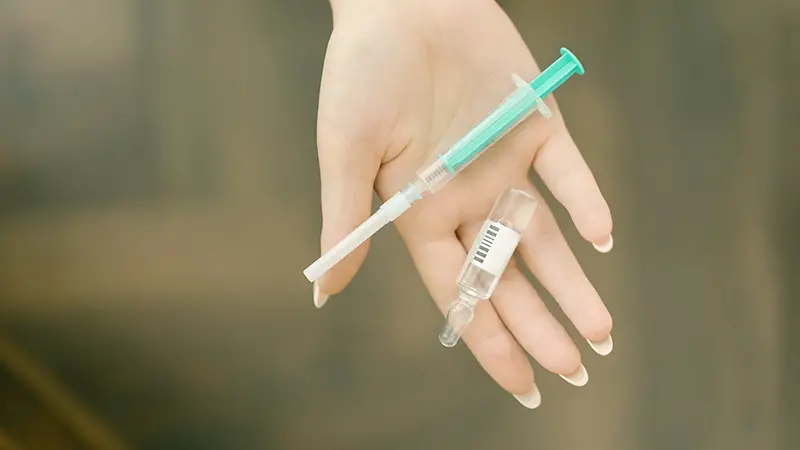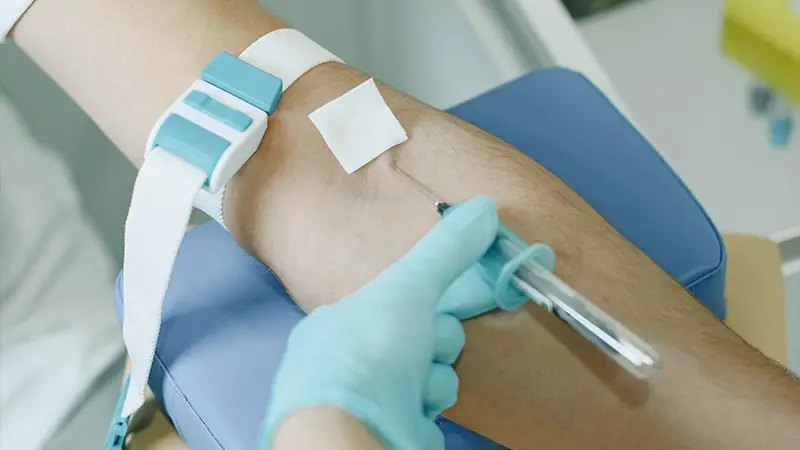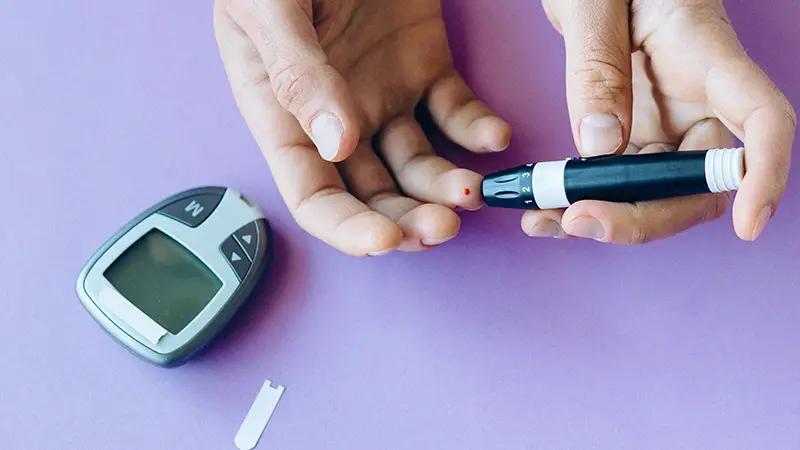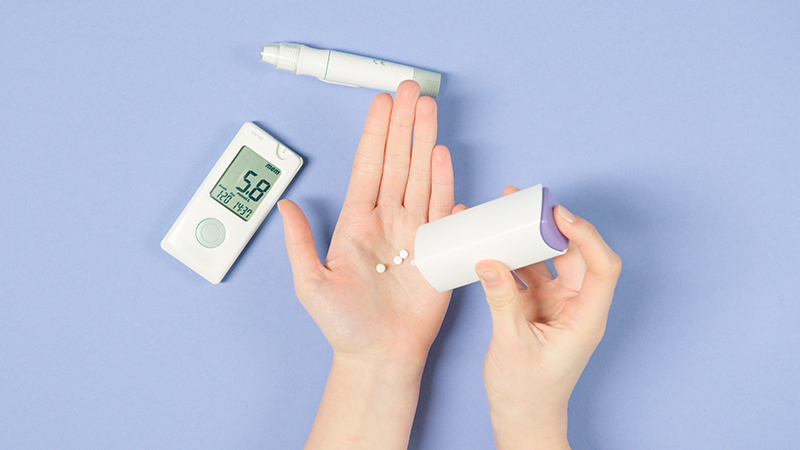Managing diabetes requires precise medication administration, and missing a dose of insulin can have serious consequences. However, life can get hectic, and it’s not uncommon to occasionally forget whether you’ve taken your insulin.
Always prioritize open communication with your healthcare provider. Additionally, consider using medication reminder tools, such as apps or pill organizers, to help track your insulin doses and reduce the chances of confusion.
The dilemma of “Did I or didn’t I?” can be both frustrating and worrisome. In this guide, we’ll explore ‘What to do if I can’t remember if I took my insulin’.
Remember, it’s essential to act promptly and make informed decisions to maintain your blood sugar.
Whether you’re a newly diagnosed diabetic or someone who has been managing diabetes for years, this guide will offer clarity on how to handle the uncertainty of missing an insulin dose.
What to Do If I Can’t Remember If I Took My Insulin?
The human mind can be forgetful, and when it comes to daily routines, it’s not uncommon to have moments of uncertainty about whether you’ve already taken your insulin. Several factors contribute to this forgetfulness:
Busy Lives
In today’s fast-paced world, it’s easy to get distracted. You may have taken your insulin but immediately become engrossed in other activities, making it easy to forget.
Routine Monotony
When you perform the same tasks day in and day out, they can become automatic. This can make it challenging to recall if you’ve completed a specific step in your routine.
Multiple Medications
If you’re taking multiple medications, the chance of confusion increases. Keeping track of various pills and insulin injections can be overwhelming.
The Risks of Missing Insulin Doses

It’s important to understand the potential consequences of missing an insulin dose. Insulin is a hormone that helps regulate blood sugar levels. When you miss a dose, your blood sugar can become uncontrolled, which may lead to various complications, such as:
Hyperglycemia
Missing insulin can result in high blood sugar levels (hyperglycemia). This can cause symptoms like increased thirst, frequent urination, fatigue, and blurred vision.
Diabetic Ketoacidosis (DKA)
In severe cases, especially if insulin is missed for an extended period, it can lead to DKA, a life-threatening condition characterized by a buildup of ketones in the blood.
Uncontrolled blood sugar over time can contribute to long-term complications of diabetes, including heart disease, kidney problems, nerve damage, and vision issues.
What to Do When You Can’t Remember If You’ve Taken Insulin?
When faced with the uncertainty of whether you’ve taken your insulin, follow these steps to make an informed decision:
Check Your Insulin Pen or Vial
Examine your insulin pen or vial. If you notice a change in the amount of insulin, it’s a clear indication that you’ve already taken your dose.
Consult a Medication Tracker
If you use a medication tracker app or a physical record, refer to it to confirm if you’ve logged your insulin dose for the day.
If you’re still uncertain, monitor your blood sugar levels. If they are already within your target range, it’s possible you’ve taken your insulin. If your levels are elevated, you may have missed a dose.
Reach Out to Your Healthcare Provider
If you’re unable to determine whether you’ve taken your insulin and your blood sugar levels are uncontrolled, contact your healthcare provider for guidance.
Err on the Side of Caution
If you can’t definitively confirm whether you’ve taken your insulin and the consequences of missing a dose are potentially severe, it’s usually safer to take another dose. Consult your healthcare provider for advice on adjusting subsequent doses.
Preventing Future Uncertainty
To minimize the likelihood of experiencing this uncertainty in the future, consider these preventive measures:
Create a Medication Schedule
Establish a consistent medication schedule, and try to take your insulin at the same time every day. This routine can help reduce forgetfulness.
Set alarms or use medication reminder apps to alert you when it’s time to take your insulin.
Organize Your Medications
If you’re on multiple medications, use pill organizers to keep track of your doses and reduce confusion.
Keep your healthcare provider informed about any issues you face with your medication regimen. They can provide personalized guidance and solutions.
How Long Can a Diabetic Go Without Insulin?

The length of time a person with diabetes can go without insulin depends on several factors, including the type of diabetes they have, their individual insulin requirements, and their overall health.
Insulin is a hormone that regulates blood sugar levels, and for individuals with diabetes, it is a life-sustaining medication. Going without insulin for an extended period can lead to severe complications, and in some cases, it can be life-threatening.
Type 1 Diabetes
Type 1 diabetes is characterized by the body’s inability to produce insulin. People with type 1 diabetes are entirely dependent on external insulin sources for survival.
Without insulin, their blood sugar levels can rise rapidly, and in the absence of treatment, this can lead to a life-threatening condition called diabetic ketoacidosis (DKA).
In the case of someone with type 1 diabetes, going without insulin for an extended period can be a matter of hours to a day or two before experiencing critical consequences.
Type 2 Diabetes
Type 2 diabetes is a condition where the body either doesn’t use insulin effectively or doesn’t produce enough insulin. Many individuals with type 2 diabetes can manage their condition through lifestyle changes, oral medications, and, in some cases, insulin.
Some may be able to manage their blood sugar levels for a short time through other medications, dietary control, and increased physical activity, while others may rely on insulin for better blood sugar control.
Individual Insulin Requirements
The amount of insulin a person needs varies depending on factors such as their weight, age, activity level, and the severity of their diabetes. Some individuals require higher doses of insulin to maintain normal blood sugar levels, while others may need less.
Going without insulin is not recommended, but if a person with diabetes were to miss their usual dose, the impact on their blood sugar levels would depend on their individual insulin requirements.
Potential Consequences of Going Without Insulin
Going without insulin can lead to various complications, and the severity of these consequences depends on the duration without insulin, the type of diabetes, and individual factors. Here are some potential consequences:
Hyperglycemia
High blood sugar levels can lead to symptoms such as increased thirst, frequent urination, fatigue, and blurred vision. In the short term, these symptoms can be distressing.
Diabetic Ketoacidosis (DKA)
In individuals with type 1 diabetes, missing insulin doses can lead to DKA. DKA is a life-threatening condition characterized by the buildup of ketones in the blood.
Symptoms include vomiting, rapid breathing, confusion, and abdominal pain. Immediate medical attention is required to treat DKA.
The Importance of Regular Insulin Management
For individuals with diabetes, regular insulin management is critical to maintaining their health and preventing complications. It is never recommended to intentionally go without insulin unless under the direct supervision and guidance of a healthcare provider.
Follow your healthcare provider’s prescribed insulin regimen. Monitor your blood sugar levels regularly. Make lifestyle choices that support stable blood sugar control, such as a balanced diet and regular physical activity.
Should I Take My Long-Acting Insulin If My Blood Sugar Is Low?

Taking long-acting insulin when your blood sugar is low is generally not recommended. Long-acting insulin, also known as basal insulin, is designed to provide a steady release of insulin over an extended period (typically 24 hours).
It serves as the foundation of your insulin therapy, helping to maintain stable blood sugar levels between meals and overnight. However, the management of low blood sugar (hypoglycemia) requires a different approach.
Ineffective Treatment
Long-acting insulin is not designed to rapidly raise low blood sugar levels. It works slowly and steadily to keep your blood sugar in check over an extended period. Taking it when your blood sugar is already low will not provide the immediate relief you need.
Risk of Overdosing
If you take your long-acting insulin when your blood sugar is low, it can lead to a further drop in your blood sugar levels, potentially worsening the hypoglycemic situation. This can result in severe hypoglycemia, which can be dangerous and requires prompt treatment.
Delayed Response
Long-acting insulin can take hours to reach its peak effectiveness. If you’re experiencing low blood sugar and wait for your long-acting insulin to take effect, it can lead to prolonged and severe hypoglycemia.
What to Do When Your Blood Sugar Is Low?

When your blood sugar is low, it’s essential to address the situation promptly to raise your blood sugar to a safe range. Here are the steps you should take:
Consume Fast-Acting Carbohydrates
The primary goal is to raise your blood sugar quickly. Consume 15-20 grams of fast-acting carbohydrates, such as glucose tablets, fruit juice, regular soda, or glucose gel. These sources are rapidly absorbed by your body and can help raise your blood sugar within minutes.
Wait and Recheck
After consuming the fast-acting carbohydrates, wait for about 15 minutes and then recheck your blood sugar. If your levels are still too low (below 70 mg/dL), repeat the process and consume more fast-acting carbohydrates.
The goal is to reach a safe blood sugar range (usually 70-180 mg/dL).
Once your blood sugar is within the target range, have a small snack that includes both carbohydrates and protein to help stabilize your blood sugar. This is important to prevent another drop in your blood sugar.
Monitor and Investigate
After an episode of low blood sugar, it’s important to monitor your blood sugar levels regularly to ensure they remain stable. Investigate the cause of the low blood sugar, as it may be due to factors such as too much insulin, delayed meals, or increased physical activity.
When to Adjust Your Long-Acting Insulin?
If you find that you’re experiencing low blood sugar regularly, it’s essential to discuss this with your healthcare provider.
They can help you make adjustments to your long-acting insulin dosage or timing to reduce the risk of hypoglycemia while maintaining good blood sugar control.
Your healthcare provider may also recommend continuous glucose monitoring (CGM) to provide real-time data on your blood sugar levels and help fine-tune your insulin regimen.
FAQs
Can I mix fast-acting and long-acting insulin in the same injection?
No, it’s not recommended to mix fast-acting (e.g., regular insulin, rapid-acting insulin) and long-acting (basal) insulin in the same injection.
How often should I check my blood sugar levels?
The frequency of blood sugar checks depends on the type of diabetes you have and your treatment plan.
Can I adjust my insulin dosage on my own?
It’s generally not advisable to make significant adjustments to your insulin dosage without consulting your healthcare provider. However, you can make minor corrections based on your provider’s recommendations and guidance.
What should I do if I miss a dose of insulin?
If you miss a dose of insulin, it’s crucial to take the missed dose as soon as you remember, unless it’s close to the time for your next scheduled dose. In that case, skip the missed dose and continue with your regular dosing schedule.
What are the signs of low blood sugar (hypoglycemia)?
Common signs of hypoglycemia include shakiness, sweating, rapid heartbeat, confusion, irritability, weakness, dizziness, blurred vision, and hunger. In severe cases, it can lead to loss of consciousness.
Conclusion
Diabetes management can be a daily challenge, and the occasional uncertainty of whether you’ve taken your insulin is a situation many individuals face. However, with a proactive approach and a few simple strategies, you can minimize the risks associated with missed doses.
Most importantly, never hesitate to recheck your blood sugar levels if you’re unsure about whether you’ve taken your insulin. If you suspect that you may have missed a dose, it’s better to be cautious and take it if it’s safe to do so.
Remember, maintaining consistency in your insulin regimen is key to effectively managing diabetes, and your health should always be your top priority.
By following the guidance provided in this article and staying proactive in your diabetes care, you can better navigate the challenges of medication management and work towards maintaining stable blood sugar levels, leading to a healthier and more fulfilling life.
Hi, I’m Mark Pattinson and I’m a freelance personal trainer. I’ve been working in the fitness industry for over 10 years especially since I work with diabetes patients and I love helping people achieve their fitness goals. I believe that everyone can benefit from a good workout, and I’ll do everything to make sure you get the most out of your training.